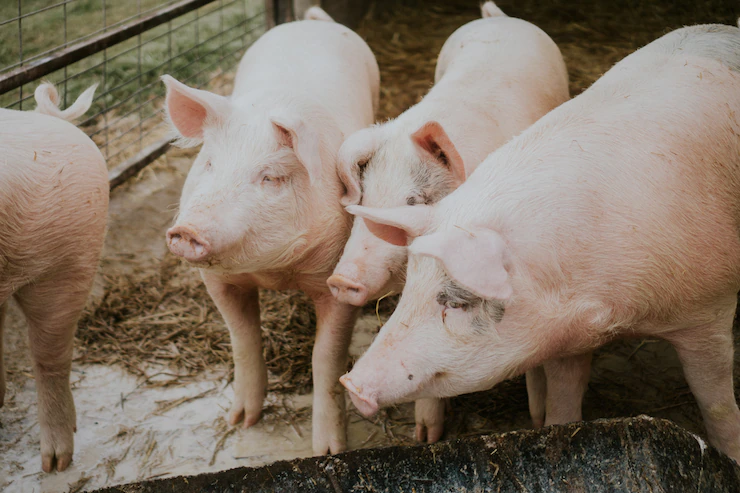When engaging in pig farming in South Africa, it is essential to be aware of various infections and diseases that can affect pigs. Here are some notable ones to watch out for:
- African Swine Fever (ASF):
ASF is a highly contagious viral disease that affects domestic and wild pigs. It can lead to high mortality rates and has severe economic implications. Strict biosecurity measures, such as controlling wild pig populations and preventing contact with infected animals or contaminated materials, are crucial to prevent the spread of ASF. - Porcine Reproductive and Respiratory Syndrome (PRRS):
PRRS is a viral disease that primarily affects the respiratory and reproductive systems of pigs. It can cause reproductive failures, respiratory problems, and decreased growth rates. Vaccination, biosecurity protocols, and quarantine measures for introducing new animals are essential to minimize the risk of PRRS. - Foot-and-Mouth Disease (FMD):
FMD is a highly contagious viral disease affecting cloven-hoofed animals, including pigs. It can cause fever, blisters in the mouth and feet, and decreased productivity. Strict quarantine measures, vaccination, and controlled movement of animals and animal products are crucial for preventing the spread of FMD. - Swine Influenza:
Swine influenza is a respiratory disease caused by influenza viruses that can infect pigs. It may result in coughing, sneezing, fever, and reduced appetite. Strict hygiene practices, vaccination, and minimizing contact with infected animals or contaminated environments are important for preventing swine influenza. - Porcine Circovirus Associated Diseases (PCVAD):
PCVAD encompasses a group of diseases caused by Porcine Circovirus Type 2 (PCV2). It can lead to respiratory problems, weight loss, and reproductive issues in pigs. Vaccination, good hygiene practices, and managing stress in the herd can help prevent PCVAD. - Classical Swine Fever (CSF):
CSF, also known as hog cholera, is a highly contagious viral disease affecting pigs. It can cause high fever, loss of appetite, and hemorrhages. Strict biosecurity measures, vaccination, and immediate reporting and culling of infected animals are crucial for controlling CSF. - Salmonellosis:
Salmonellosis is a bacterial infection caused by various strains of Salmonella. It can lead to diarrhea, fever, and reduced growth in pigs. Implementing proper hygiene practices, maintaining clean and sanitary conditions, and ensuring proper feed and water management are essential for preventing Salmonellosis.
It is important to consult with local veterinary professionals and adhere to recommended biosecurity practices and regulations specific to your region to prevent and manage these diseases effectively. Regular monitoring, early detection, and prompt reporting of any suspected cases to the relevant authorities are also crucial for protecting the pig population and the pig farming industry as a whole.
Join 'Farmers Mag' WhatsApp Channel
Get the latest Farming news and tips delivered straight to your WhatsApp
CLICK HERE TO JOIN






